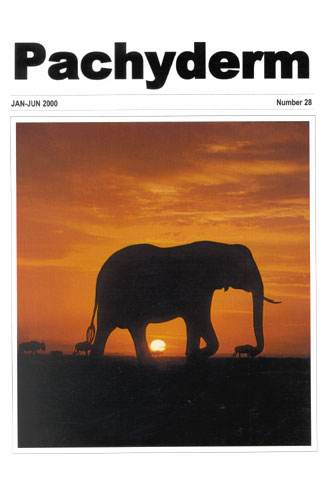Iodine as a possible controlling nutrient for elephant populations
Abstract
The geography and physiology of iodine deficiency in humans and domestic ungulates suggests that the nutritional content of ground water may hold a key to humane and efficient management of elephant populations. Artificial bore hole water in dry climates in southern Africa appears to be, on the average, a good supplement of this easily leached element., an may have inadvertently boosted the reproductive rates of elephants in several conservation areas. Elephant are likely to be limited by deficiency of iodine: their plant foods are deficient in this element relative to the hormonal requirements associated with exceptional brain and thyroid size. Extrapolation from domestic ecosystems suggests elephants exceed meduim sized wild herbivores in the sensitivty of their reproductive rates to subclinical deficiency of iodine. The great variation iodine concentrations between adjacent aquifers suggests an approach to population control: closure of iodine rich bole holes in overpopulated areas may reduce rates of sexual maturation, conception, birth and weaning with a minimum artifical distress to adults or surviving juveniles.
Downloads
Published
How to Cite
Issue
Section
License
Copyright (c) 2000 Antoni V. Milewski

This work is licensed under a Creative Commons Attribution-NonCommercial 4.0 International License.




